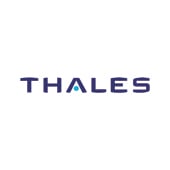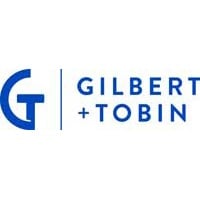

General counsel – legal and contracts | Thales Australia





Nicholas Sedgwick
General counsel – legal and contracts | Thales Australia
I lead a team of 30 legal counsel, commercial managers and contract managers, who are delivering legal and commercial support to some of Australia’s most strategically important defence, infrastructure and technology projects. In the last two years, these projects have included a contract for the design and manufacture of 1,100 Hawkei Protected Mobility Vehicles for the Australian Defence Force. Also, other contracts for the operation of the Australian Defence Force’s munitions factories in Benalla and Mulwala, the OneSky programme for the delivery of Australia’s first harmonised civil and military air traffic management system, and key communication and technology solutions for the Sydney Metro.
My ideal candidate is someone who can demonstrate a high degree of worldliness that they have developed through a mixture of professional and personal experience. I believe this experience can be often leveraged to enable them to deliver smarter and more practical solutions. I also like someone, who strives to make time to collaborate with and contribute to the success of the team by supporting team activities and continuous improvement initiatives, rather than just doing their day job.
This year, we will launch a new central workspace and document management system. This will enable the team to more efficiently share information and collaborate with each other, as well as more reliably keep records and documents. We have never had this capability before and will be able build upon this technology platform with other tech products, such as contract automation and online document approval and signing. However, my experience is that to receive the full benefit of “legal tech”, a team must work hard to “fix” their documents and processes first.
A clear vision and smart, achievable objectives must be set. It is essential that the team fully understands “what’s in it for them?”. A team should not try to do it all at once, but strive to make small incremental changes to the way it works, engages and collaborates with each other, and delivers value to the business. Otherwise, your culture will not be enduring and you and the team will find yourself starting over again and again. It is also crucial to adopt a consultative approach with the team underpinned by constant communication and feedback opportunities.
I am able to proactively contribute to diversity and inclusion policies of Thales Australia. My senior peers and I lead, participate in or contribute to various initiatives and activities focused on improving diversity and inclusion and removing bias in resourcing and other work practices as well as workplace behaviours. Most importantly, as a senior leader I do my best to “walk the walk” on these policies every day. By way of example, in 2018 I took 3.5 months parental leave to be with my 10-month-old daughter and support my wife’s return to her career. This was the best and hardest experience of my life so far. I continue to work flexibly to support my wife’s career goals and support flexible working arrangements for my team members as well.
It is widely observed that many in-house teams are being asked to ‘do more with the same’ and the workload pressure on in-house lawyers continues to increase. This pressure is being further enhanced by the ever-increasing demands on companies due to Australia’s growing regulatory and governance environment. At the same time, there is a driving need for many of these companies to also transform their businesses and operations so they can remain competitive. Given this framework, the job of an in-house lawyer has never been harder, and consequently, it has never been more crucial for a general counsel to create a sustainable and successful working environment for his or her team members through the provision of “thinking time”.
By “thinking time”, I am not simply referring to giving a team member an hour or two a week away from the day-to-day grind to work on an important project or task – although that’s not a bad idea. Rather, I use “thinking time” as an all-encompassing term that is representative of the culture in which team members have the right amount of time to do more detailed research, explore new ideas, be more creative in their approach, and contribute to business and team initiatives that improve engagement and productivity. This will lead to higher team performance. So how do you get there you say? To me, creating more time for your team requires a continuous focus on the following:
– Ensuring team members have time to engage with and sit with the business they support rather than just be “service providers from head office”.
– Ensuring team members feel high levels of autonomy and empowerment, but at the same time, ensuring that you are approachable and available when they need.
– Constantly challenging inefficiencies through a whole-of-team initiative aimed at continuously improving team processes, documents and tools.
– Developing a habit of communication, collaboration and knowledge-sharing within the team so members have information at hand when they need it and don’t lose time searching for it.
– Ensuring team members feel they can appropriately push back on the demands of the business. Often deadlines and requests of the business are arbitrary and not thought through. Empower and support your team members to manage stakeholders so they can deliver the best value outcome for the business, not just the fastest.
– A flexible working culture. Everyone’s personal life can be challenging and it often throws up stresses that naturally impact their performance at work. To me, high performance is measured by outcomes and results, not the time a team member spends at their desk. If a team member is provided time to set up their personal life for success, they can be focused and give their best when they are working.
Ultimately, there is no right answer, but a culture in which “thinking time” is fostered will lead to a team whose members are high performing and recognised as integral to the business not just “grinders” or cogs in the wheel.